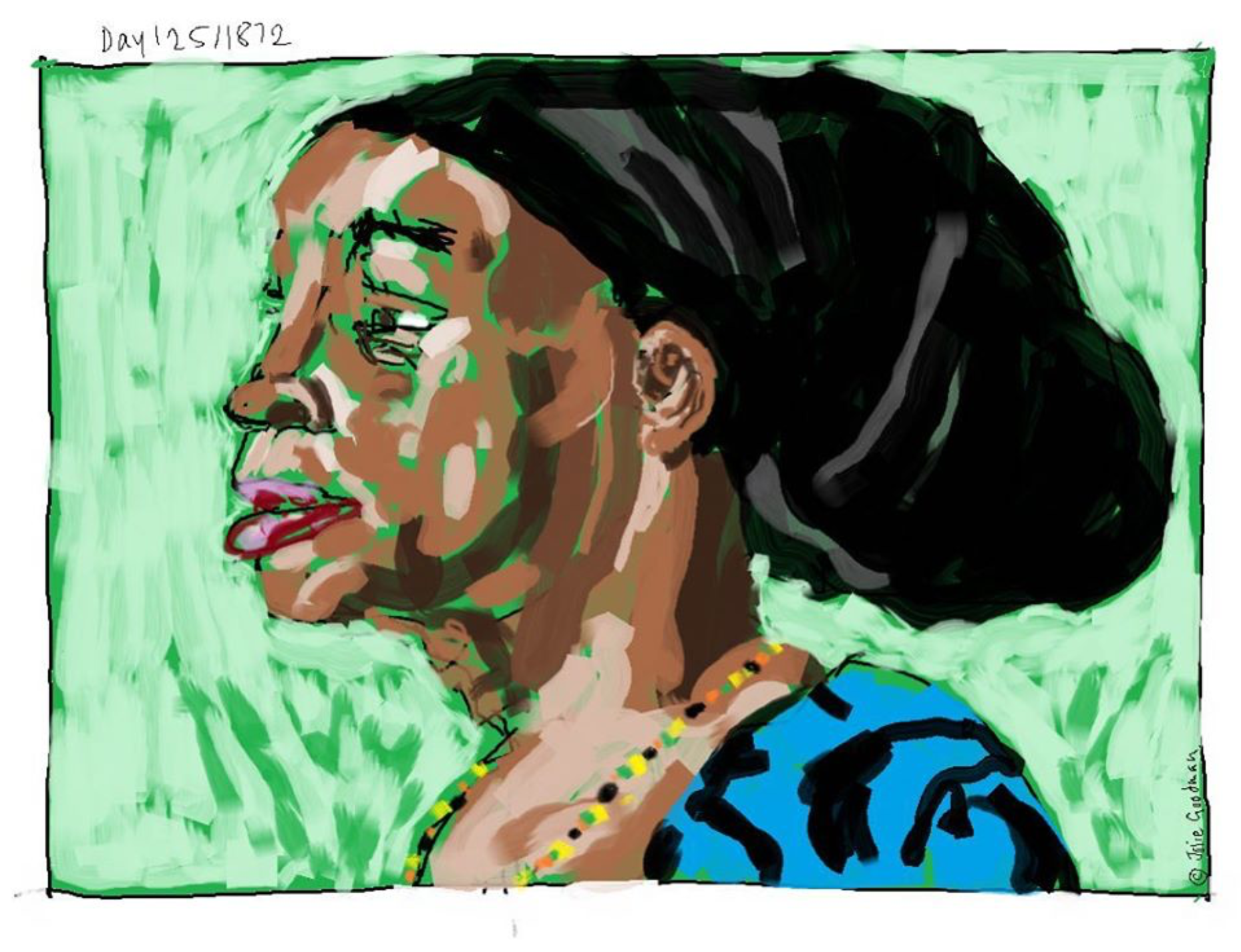on
BY MKUU AMANI
“When I got the letter, I thought, ‘Am I British? What am I?’ and I couldn’t even answer that in my head.” Paulette Wilson.
The funeral of the woman who became known to many as ‘The Windrush Champion,’ took place in Wolverhampton on September 4th.
Paulette sadly passed away in late July at just 64 years of age.
Much befitting of her status was the horse-drawn carriage, African drumming, national media coverage and many mourners that accompanied her to her final resting place.
Just weeks before, she had delivered a petition containing 130,000 signatures to Downing Street, calling on the government to resolve the outstanding issues and compensate victims of the Windrush Scandal.
But what is the Windrush Scandal?
The ‘Windrush Lessons Learned Review’ points out that operational and organizational failings by the Home Office ‘had a causative impact on the detrimental treatment recieved by the Windrush generation as a result of them being caught up in measures designed for people who have no right to be in the UK.’
The independent assessment organized by the Home Secretary makes the case that the plight for the victims of the scandal arose because their ‘history was institutionally forgetten.’
‘Accurate records were not kept,’ the review states, ‘both in relation to individual cases and the development of relevant policy and legislation as a whole.’
Paulette Wilson had been one of the victims. For three years, she lived under the threat of deportation. And had the government gone ahead with plans to deport her, what is clear today is that they would have been making a mistake.
She was ten years old when she arrived in England during the mid-sixties. In 2015, she was wrongly classified by the Home Office as an illegal immigrant.
Deprived of essential services, Paulette experienced extreme hardship, including homelessness. She was subject to further harsh treatment in the form of arrest and detention in an Immigration Centre.
Only after a three-year battle was her status corrected, and her ‘Leave to Remain’ confirmed.
On the back of the terrible hardships she survived ‘The Windrush Champion’ was born. She became a campaigner for other victims of the scandal.
Once the scandal became public, it soon became apparent that it had hit a raw nerve both at home and abroad.
Jamaican Prime Minister Andrew Holness, and Saint Kitts and Nevis Prime Minister Timothy Harris were among the twelve Caribbean leaders that attended a meeting with the UK Prime Minister Teresa May in 2018.
May spoke to “reiterate how much value the contribution that’s been made by commonwealth citizens who’ve made their mark here in the UK, to the United Kingdon.”
The UK prime minister made particular reference to the Windrush generation, who she said, “helped to build the country that we are today.”
Teresa May is no longer in the PM role, replaced by Boris Johnson, but the government’s attempts to resolve matters continues.
According to the government’s Home Office, the government had paid £360,000 in compensation by May 2020. It has also established a Windrush Commemoration Committee chaired by Dame Floella Benjamin and introduced a national Windrush Day.
Each June 22nd, the country is invited to ‘recognise and honour the enormous contribution of those who stepped ashore at Tilbury Docks 70 years ago.’
On that date in 1948, the Empire Windrush arrived at the docks in Essex, with 492 passengers from the Caribbean aboard.
There but for the Grace of God go I.
This question of Britishness – ‘Am I British? What am I?’ the query that Paulette Wilson asked herself and was unable to find an answer for, is a dilemma many have faced.
I was born in the UK.
My parents were born in Jamaica. Had they not come to England when they did, I may have been born there too.
My father came from the northwestern parish of Hanover. The more southernly parish of St Elizabeth is where my mother grew and lived before moving to Kingston to help her father run his store.
I’ve had limited success tracing my ancestry on my father’s side, but I’ve managed to trace back to my great-grandfather on my mother’s.
It’s a faint trace. I have names and very little more.
My loose grasp of Jamaican history equips me with some idea of what life may have been like when my great-grandparents were alive.
Viewing a rare selection of old photographs from the 1800s caused me to wonder where my relatives of those past years resided. And how they lived their day-to-day.
If I was able to travel back in time, where might I find them?
Perhaps deep amidst the forest’s flora working alongside the cane cutters? Or at the country market where, in their numbers and brightly dressed in their wide-brimmed hats and flush, long dresses, the women would sell their goods?
And my great-great-grandparents. Where might I find them? The journey back through my generations holds some fascination for me but comes with no small degree of pain.
I think I can quite safely assume that many of my enslaved ancestors lived impoverished lives, deprived of human rights and equal opportunities.
And that if I were to ask, there would be no shortage of them able to share their torrid experiences of affliction by the hot brand, the whip, the rope and the gun.
Ours is a tarnished history. An account bedevilled by the exploits of a ruling empire that put profits before people.
Sad to say that with our history in mind, there is a point at which most everything that I know, or think I know, merges into darkness. A black shadow that renders me blind to who we were before we landed on Jamaican soil. My African history – the dialect, my country of origin – all knowledge of these things – to the most part, was lost at sea. And in some instances, far too often history suggests, callously thrown overboard.
So, when the issue of nationality or identity arises, and there is a challenge to our Britishness, it provokes a dilemma that few outside the Brit-African Caribbean community can imagine nor appreciate.
Strictly speaking, we are not Jamaican, although, for around £140, we can apply for Jamaican citizenship as descendants of Jamaican born parents.
Nor are we African, although initiatives exist which encourage our return to the continent. An example of this is Ghana’s Right of Abode, which any person of African descent in the diaspora can seek.
The growth of neo-Nazi extremism in the UK in the form of extreme rightwing groups like National Action and Sonnenkrieg Division with their ‘white Jihad’ ideology reminds us that according to some quarters of society, we will never be ‘British.’
Faced with the threat of deportation after residing in a country for 50 years is a catastrophic turn of events.
Few would argue against fighting to achieve ‘Leave to Remain,’ as Paulette Wilson did. Eventually, she was victorious in her battle to prove how British she was.
But the cost, the hardship, the pain and frustration experienced, the isolation and homelessness – all were circumstances she should not have had to endure.
Campaigners are raising funds to have a memorial of Paulette erected.
Stay in the loop with exclusive news, stories, and insights—delivered straight to your inbox. No fluff, just real content that matters. Sign up today!













